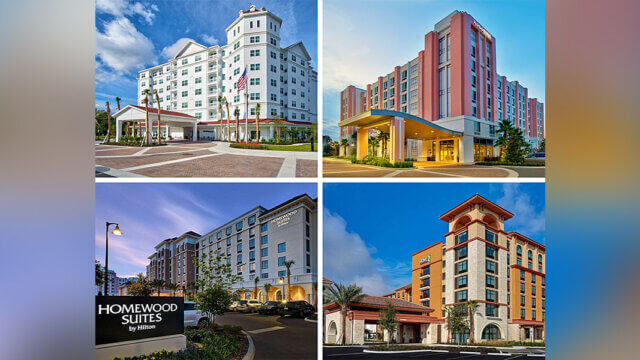INTERNATIONAL REPORT—JLL has released the findings of its 21st semi-annual Hotel Investor Sentiment Survey (HISS), which provides a perspective on the current state of the lodging industry and highlights investor expectations related to investment activity and hotel performance.
The idea of being comfortable operating under a “new normal” was reiterated by JLL’s findings in the HISS, with nearly 40% of investors indicating that for investment activity to pick-up, occupancy will need to be within 60% to 70% of 2019 levels.
At the onset of the pandemic, prognosticator consensus suggested the industry would recover in two to three years, while most now expect the industry recovery to take slightly longer, with up to a four-year timeline. However, certain hotels are outperforming and may bounce back sooner. For example, extended-stay and economy hotels. For the week ending Aug. 22 in the U.S., the economy hotel class saw demand recover to 91% of the average weekly demand observed in 2019. Further, as we continue to see the number of COVID cases rise and different countries/markets emerge as hotspots, we realize that recovery timelines will also vary region by region. In fact, the HISS revealed that global investors expect their property/portfolio RevPAR to return to 2019 levels at a quicker pace across APAC (2.5 years), followed by EMEA (3 years) and, lastly, North America (3.7 years). These expectations are likely influenced by the number of COVID-19 cases per region.
To support the lodging industry’s recovery efforts, global investors in the HISS indicated that lender support and government support on payroll responsibilities are the top two most impactful measures in providing relief to the industry. Indeed, we witnessed several governments step-up in unprecedented ways by implementing robust fiscal and monetary policies to lend support to hoteliers. But until a vaccine is widely available, the lodging industry’s performance will remain stagnant. Additional aid in the form of stimulus packages will be necessary to bolster it.
During the second quarter of the year, hoteliers focused on asset management and lender outreach as they sought to negotiate forbearance periods. The shift away from hotel acquisitions was evident in H1 2020 global transaction volume, with activity falling 51% relative to the same period in 2019. With Q3 well underway, JLL anticipates another phase of loan restructuring and for activity to concentrate on rescue capital and note sales. This trend is supported by the HISS results, where investors indicated their appetite for hotel acquisitions has moderated. In fact, only 24% of respondants noted that they are active in the market, down from 40% pre-COVID-19. It’s expected investor sentiment will begin to shift toward deal sourcing in Q4 and into 2021 as the pipeline of hotels available for sale is revitalized and the opportunity to acquire assets at a significant discount to replacement costs becomes more pronounced.
By year-end 2019, $3.7 billion in closed-end private funds was raised globally in hotel-focused vehicles, representing a 35% compounded annual growth rate relative to 2015 levels. With record level of dry powder on hand, private equity firms are preparing to pounce on distressed assets that come to market, driving the bulk of liquidity as activity picks up. Foreign investors are also expected to be providers of liquidity, particularly in the U.S., as a sharp drop in the cost of currency hedging is making U.S. real estate much more affordable. Notably, in the HISS, investors indicated that despite embracing a domestic-focused investment strategy over the next six months, Europe and North America remain top of mind for foreign hotel acquisitions.
JLL’s 21st semi-annual Hotel Investment Sentiment Survey offers unique insights and perspectives on future investment trends. The survey was sent to over 1,000 global clients in June.

